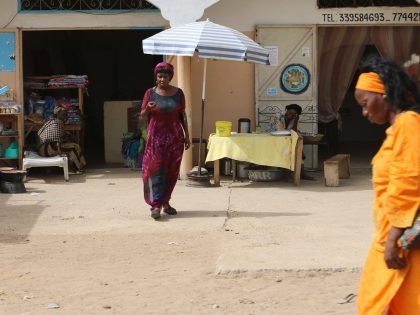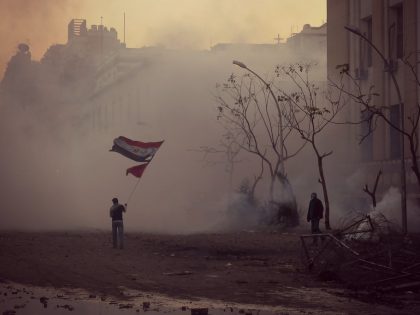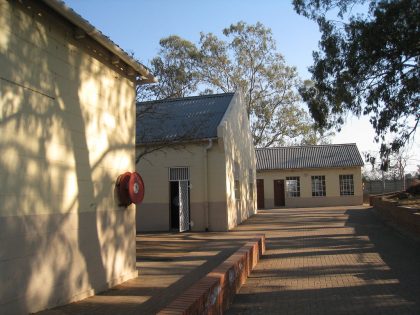
Reading List: Cara Moyer-Duncan
Media scholar Cara Moyer-Duncan wrote a book about postapartheid South Africa. Here she gives her book picks for our #ReadingList series.

Media scholar Cara Moyer-Duncan wrote a book about postapartheid South Africa. Here she gives her book picks for our #ReadingList series.

What it means to be a man and a feminist.

Jumoke Verissimo’s first novel, A Small Silence, explores the psychic afterlives of protest in Nigeria’s Fourth Republic.

How do white South African writers confront the country's as well as their own pasts?

A close friend remembers the Kenyan writer and commentator Binyavanga Wainaina (January 18, 1971 - May 21, 2019).

Rama Salla Dieng talks with a British literature scholar on literary activism in French.

A new thriller by Andrew Welsh-Huggins follows a detective investigating the disappearance of a Somali-American teenager in Ohio.

The author of a book on football and revolution in Egypt gives us a list of must reads on football in the Middle East and North Africa.

The author and journalist shares a reading list from her time as The New York Times' Bureau Chief for West Africa.

Imagining a utopian, unified African federation not divided by colonial era borders or neocolonial interventions.

Among the books historian Tallie has on his reading list is one about the food of the American Old South—“… a forgotten Little Africa but nobody speaks of it that way.”

The historian of South Africa on books she is reading for a new project on women and anti-apartheid activities in 1950s rural KwaZulu-Natal.

The writer, a historian, on scholarly texts, novels, and memoirs that he consulted in writing a political biography of US congressman Mickey Leland and his solidarity politics in Africa.

The French philosopher and TV personality favors spectacle over analysis. The result: we don't make sense of political violence in Nigeria.

Remembering Adelaide Tantsi Dube’s poem 'Africa: My Native Land,' first published in 1913, the same year the white government stripped black South Africans of their land.

The writer, a historian of capitalism, white supremacy, and US imperialism, on four books he has been reading.

English Professor and Editor of Brittle Paper, recommends five books she’s been reading.

Beyond news headlines, African artists complicate common migration narratives.

Mukoma wa Ngugi's opening remarks at the launch (today) of the 2020 Writers Unlimited International Literature Festival in The Hague.

Nthikeng Mohlele’s novel Small Things (2013) provides a rejoinder to J. M. Coetzee’s Disgrace (1999), depicting a black man’s perspective on the failures of South Africa’s transition.